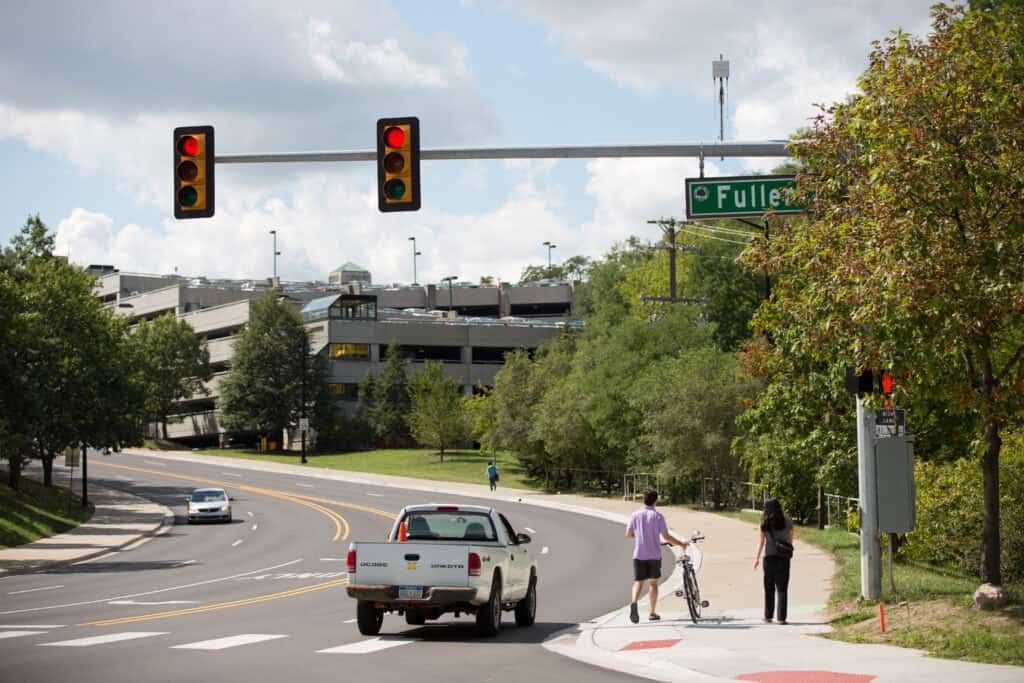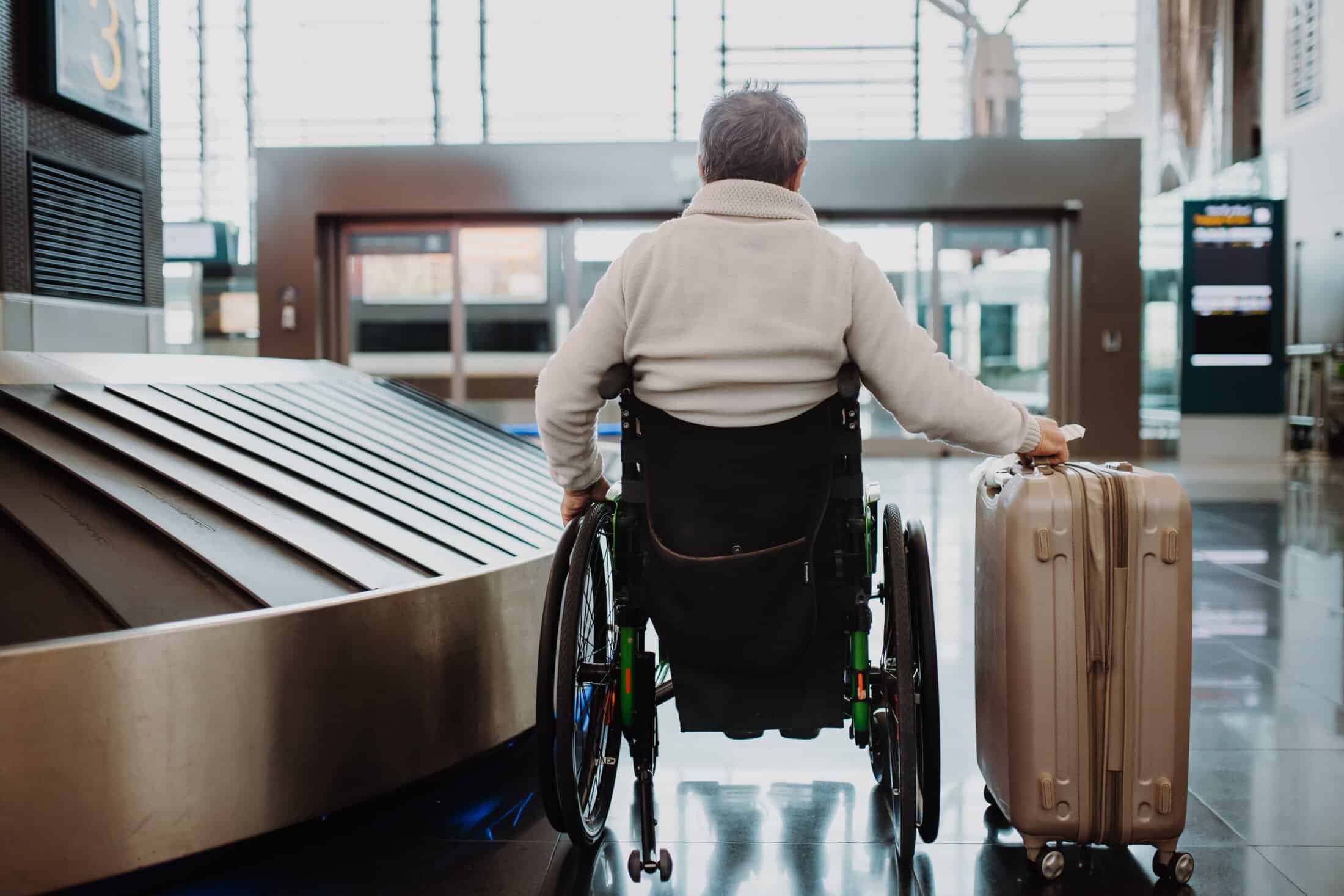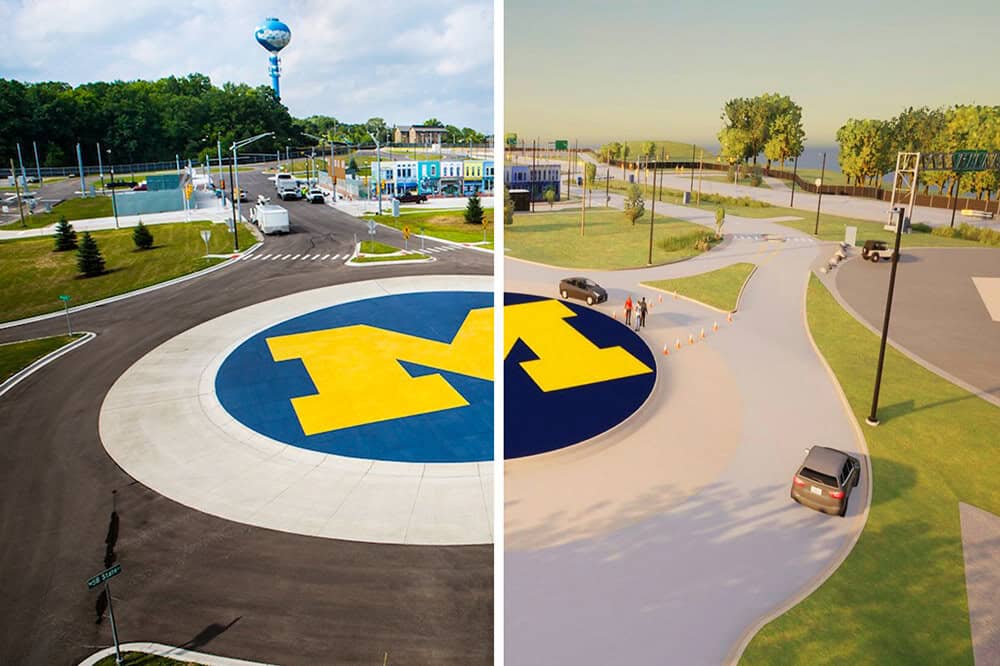Project Highlights
Together with our partners across academia and our sponsors in government and industry, UMTRI is at the forefront of research innovation.
We’re working on solutions that are helping shape the evolution of a global transportation and mobility system—to get people, goods, and services where they need to be in a safe and efficient manner.

Maintaining high-quality access to Michigan crash data statistics
Project: Michigan Traffic Crash Facts
Sponsor: U.S. Department of Transportation
Dates: 1992–present
Researchers: Kathleen D. Klinich, Jingwen Hu, Miriam Manary, Nichole Orton, Kyle Boyle, Yushi Wang, Brian Eby, Jennifer Bishop
UMTRI’s crash analysis research has continued to yield influential findings enabling an improved safety response. The Michigan Traffic Crash Facts website is an award-winning, powerful crash analysis tool that allows users to search traffic crash facts related to a wide range of data including: age, deer, vehicle/driver, and occupant information.
Visit Michigan Traffic Crash Facts

Establishing national benchmarks for C-V2X technologies
Project: Ann Arbor Connected Environment 2.0 (AACE 2.0)
Sponsor: Federal Highway Administration (FHWA)
Dates: February 2024–February 2027
Researchers: Henry Liu, Debra Bezzina
Amount Awarded: $12.7 million
Project: Smart Intersections Project (SIP)
Sponsor: Federal Highway Administration (FHWA)
Dates: September 2022–January 2026
Researchers: Henry Liu, Debra Bezzina
Amount Awarded: $19.9 million
2011–2018 Projects
Project: Ann Arbor Connected Environment (AACE)
Sponsor: Mcity
Dates: May 2018–September 2022
Researcher: James Sayer
Amount Awarded: $4.6 million
Project: Ann Arbor Connected Vehicle Test Environment (AACVTE)
Sponsor: Federal Highway Administration (FHWA)
Dates: May 2015–May 2018
Researcher: James Sayer
Amount Awarded: $15 million
Project: Safety Pilot Model Deployment (SPMD)
Sponsor: Federal Highway Administration (FHWA)
Dates: August 2011–August 2014
Researcher: James Sayer
Amount Awarded: $30.3 million
UMTRI has a long history in providing ongoing research in connected vehicle and infrastructure technology, standing up the world’s first large-scale, real-world deployment in 2012. Since then, we have set the benchmark for commercial deployment and large-scale adoption, and established a trusted framework for delivering validated infrastructure intelligence to all road users.
About AACE 2.0

Creating statistical models of vehicle occupant posture and body shape
Project: Occupant Anthropometry
Sponsor: NHTSA
Dates: 2024–2026
Researchers: Matthew P. Reed, Monica Jones, Byoung-Keon (Daniel) Park
UMTRI’s biosciences researchers are international leaders in the statistical analysis of human anthropometry, shape, and posture. Online tools created by our researchers can predict human shape as a function of age, height, weight, and gender for use in computational models and ergonomic applications.
More at Human Shape

Testing wheelchairs to meet Federal Aviation Administration requirements
Project: Evaluating Wheelchairs for Potential Use as Aircraft Seating
Sponsor: National Institute for Disability, Independent Living, and Rehabilitation Research (NIDILRR)
Dates: October 2022–August 2025
Researchers: Kathleen D. Klinich, Miriam Manary, Nichole Orton, Kyle Boyle, Brian Eby, Jennifer Bishop
Approximately 3.6 million people in the US use wheelchairs, but they cannot currently use them on aircraft, preventing many from flying. A recent National Academy of Sciences (NAS) consensus document determined that it should be feasible on most commercial aircraft to allow passengers to use their personal wheelchairs if they can meet Federal Aviation Administration (FAA) crashworthiness standards.
More
In response, UMTRI researchers conducted research with funding from NIDILRR to demonstrate that wheelchairs meeting current Rehabilitation Engineering and Assistive Technology Society of North America (RESNA) standards for ground vehicles can generally meet these requirements, if the wheelchairs are secured by 4-point strap tie downs and the occupant is restrained by a wheelchair-mounted lap belt and a supplemental lap belt anchored to the aircraft. Project results are being referenced in the FAA’s Fall 2025 report to Congress addressing the issue.
VISIT Michigan Engineering Wheelchair Transportation Safety

Understanding the range of body sizes and shapes among children
Project: Child Strength for Product and Safety Standards
Sponsor: U.S Consumer Product Safety Commission
Dates: 2019–2025
Researchers: Monica Jones, Sheila Ebert, Carl Miller, Byoung-Keon (Daniel) Park, Hayoung Jung, Aaron Wood, Leah E. Robinson, Matthew P. Reed
Strength is challenging to measure for adults, but for children different methods are needed that depend on the level of motor and cognitive development. Dr. Jones and Sheila Ebert worked with developmental psychologists, pediatricians, and other experts to develop novel methods. This work was funded by the U.S. CPSC and will provide valuable new information to inform the design of safe products.
Youth shape and Child Strength projects

Safety assessment of an AV shuttle pilot for seniors and physically disabled living in Detroit
Project: Automatic Driving System Demonstration Grant
Sponsor: U.S. Department of Transportation
Dates: 2021–2024
Researcher: Henry Liu
This USDOT demonstration grant was awarded to the City of Detroit. The project was led by the Michigan Mobility Collaborative (MMC), which was formed to test and deploy safe and scalable approaches to automated mobility in Michigan. Mcity conducted pre-launch safety testing of the shuttle service. Shuttle service was provided by project partner May Mobility.

Making a physical AV test track available for remote testing
Project: Mcity 2.0
Sponsor: National Science Foundation
Dates: January 2022–ongoing
Researcher: Henry Liu
With a $5.1 million Mcity 2.0 grant from the U.S. National Science Foundation, Mcity engineers enhanced the Mcity Test Facility by developing digital infrastructure to overlay the physical test facility and create a cloud-based, augmented-reality CAV testbed available to academic and industry researchers nationwide.
About REMOTE ACCESS

How older drivers use and learn in-vehicle technologies
Project: Longitudinal Research on Aging Drivers (LongROAD)
Sponsor: AAA Foundation for Traffic Safety
Dates: 2015–2022
Researchers: Lisa J. Molnar, David Eby, Jennifer S. Zakrajsek, Renée M. St. Louis, Nicole Zainer, Barbara Lang
Researchers from the Behavioral Sciences team and their partners have undertaken a multisite prospective cohort study designed to generate empirical data for understanding the role of medical, behavioral, environmental and technological factors in driving safety during the process of aging.